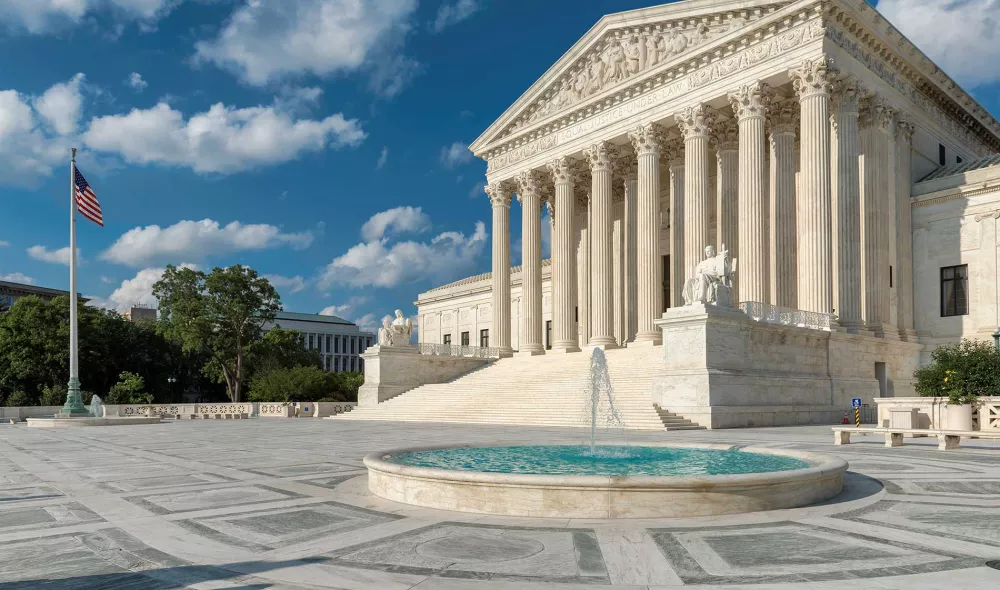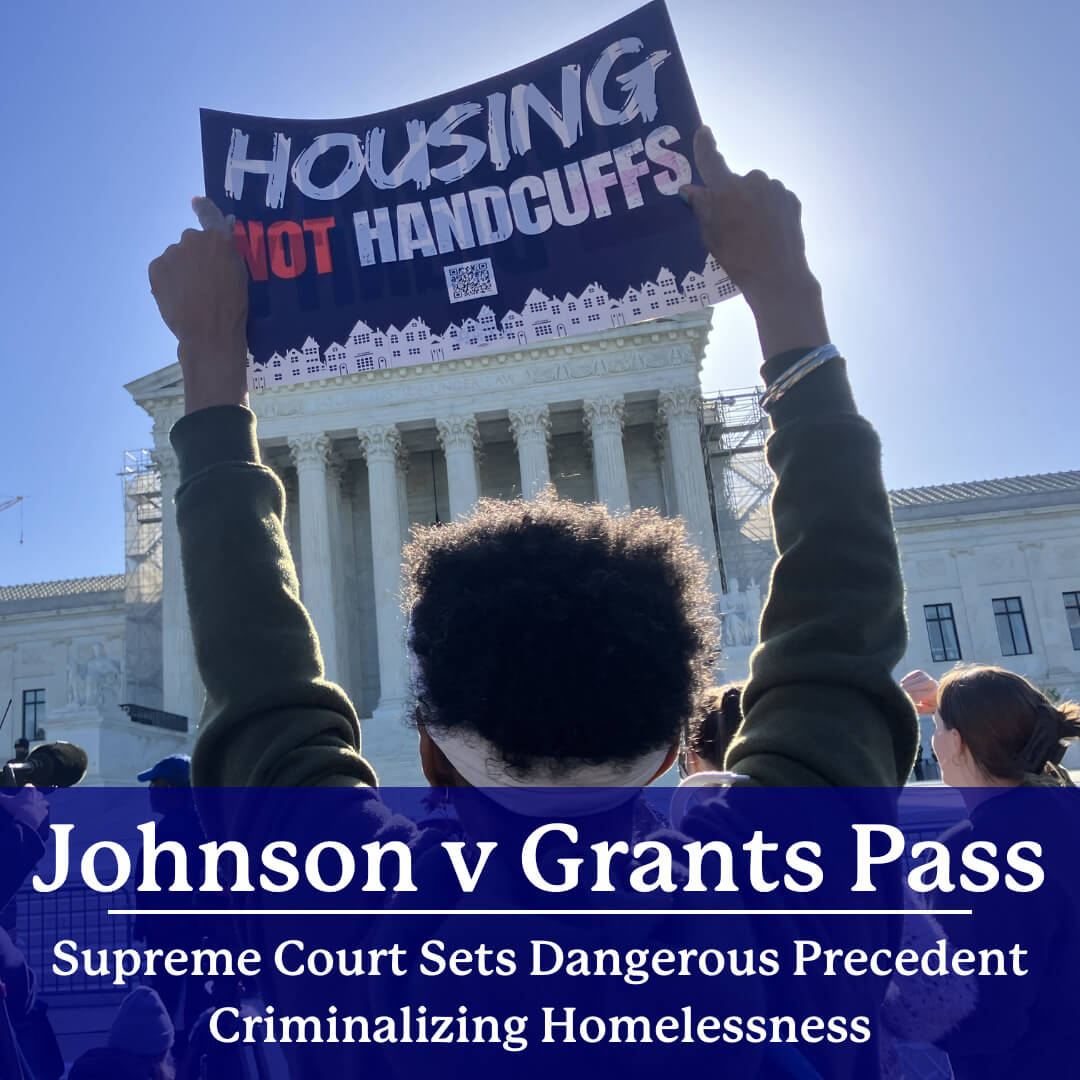Johnson v. Grants Pass Decision: Dangerous Precedent for People Facing Homelessness

With disappointment and frustration, we write today about the decision in the Johnson v. Grants Pass case.
Key Takeaways
- Supreme Court Ruling: Cities can criminalize homelessness by arresting or imposing fines on unhoused people for sleeping outside even when no shelter alternatives are available.
- Impact: This decision will disproportionately affect homeless youth, increase rates of homelessness, and create barriers to stability and self-reliance.
- Covenant House's Stance: We are committed to protecting unhoused youth and advocate for policies and programs that provide housing and support services.
- How to Help: Encourage elected officials to do the right thing. Sign up for alerts so you can join us in the fight.
Overview of the Johnson v. Grants Pass Ruling
The U.S. Supreme Court today decided that the US Constitution does not protect homeless people against cruel and unusual punishment, even when they have no choice to sleep in public using items like blankets or pillows. Today's 6 - 3 decision by the Supreme Court in the Johnson v. Grants Pass case sets a dangerous precedent for the quarter of a million people who sleep outside each night in America and for the millions of families who are just one missed paycheck away from homelessness. This ruling makes it easier to jail or ticket unhoused people including youth, for sleeping outside, which will only make it more difficult to escape homelessness.

As Dan Freed, former resident of Covenant House New York puts it, “As someone who was homeless as a teenager, I can say first-hand how difficult it is to get back on your feet. Creating criminal penalties to address homelessness will only worsen the issue and prevent the opportunity for those to get ahead. Instead of eliminating homelessness, these penalties exacerbate the struggles homeless populations face, making it harder for them to overcome their circumstances.”
Impact on Homeless Communities
The decision to allow increasing criminalization of homelessness will disproportionately affect young people, who are already at higher risk of homelessness due to factors like family issues, abuse, aging out of foster care, and economic hardship. Being given a fine, misdemeanor, or felony because you have nowhere else to sleep will disrupt a young person’s stability now and into adulthood, increasing their susceptibility to mental health issues, and creating barriers to education, employment, and housing—all of which make finding a path out of homelessness even more difficult. Homeless youth don’t need more hurdles or a criminal record to marginalize them further. Instead, society, including local governments, needs to create supportive resources, effective outreach programs, and legitimate safety nets.
What this decision really shows is that you can be fined and criminalized for simply becoming homeless, or having never had a real home in the first place.
As Dan shared in an op-ed he wrote last week with Bill Bedrossian, Covenant House president and CEO, “It’s a tax on homeless people that there is no conceivable way they could pay. As a volunteer for Covenant House, I’ve met countless teens who become homeless due to circumstances outside of their control, like after the death of a parent. I’ve met young women who have no choice but to face the uncertainties of the street to escape domestic violence. I’ve met people whose parents were struggling with addiction who sleep outside because it feels safer than their own home. These people––human beings––have no choice but to expose themselves to the elements and the risks of the street. Should these young people also have to fear waking up to police handcuffing and arresting them?”
Read the full article, Handcuffing the homeless: The punitive and unjust Johnson v. Grants Pass.
Covenant House's Response and How You Can Help
This decision will increase the rates of homelessness, increase recurrent homelessness, and prevent victims of human trafficking from escaping due to the threat of criminalization. However, Covenant House stands unwavering in our commitment to serving youth with unconditional love and absolute respect, regardless of what today’s decision changes.
In response to the Supreme Court's decision, Covenant House calls on the Biden administration and Congress to invest in programs that ensure everybody has safe, decent housing that they can afford.
Together we can unite to build a strong network of advocates to push back against this harmful ruling. We urge you to sign up for alerts, so you can join us in fighting for the rights of unhoused youth.